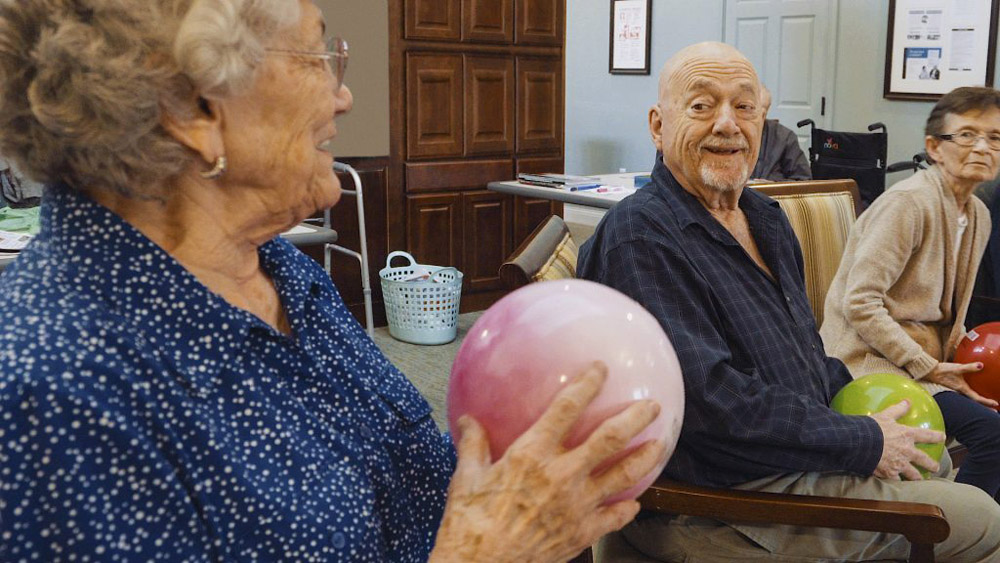Discover Compassionate Memory Care: Enhancing Top Quality of Life for Loved Ones
The journey of taking care of a loved one with cognitive disabilities provides special obstacles that can profoundly affect household characteristics and psychological health. Compassionate memory care facilities use an organized, encouraging environment designed to deal with these difficulties while improving the top quality of life for homeowners. By concentrating on individualized care and meaningful engagement, these facilities not only uplift those impacted by conditions like Alzheimer's and mental deterioration yet also supply tranquility of mind for family members. As we explore the important aspects of caring memory care, it comes to be clear that recognizing these alternatives can make a substantial distinction in the lives of all entailed.

Understanding Memory Care
Recognizing memory care involves acknowledging the specialized assistance and services created to assist individuals with cognitive problems, such as Alzheimer's condition and other kinds of dementia. Memory care centers concentrate on producing a secure and structured atmosphere that advertises the well-being of citizens while addressing their unique cognitive challenges.Key elements of memory care consist of trained personnel that are well-informed regarding the intricacies of mental deterioration and associated conditions. These specialists employ evidence-based methods to boost cognitive feature and maintain dignity via embellished care strategies. The physical setting is also tailored to lessen complication and promote familiarity, commonly including secure areas to stop wandering. Memory Care Charlotte.Moreover, memory care emphasizes social interaction and significant tasks that stimulate cognitive abilities and foster connections amongst homeowners. This strategy recognizes the value of keeping social communications to combat isolation typically experienced by people with memory loss.Families play an essential role in memory care, as their involvement assists create a supportive network that enhances the lives of citizens. By comprehending the customized nature of memory care, family members can make enlightened choices to boost the quality of life for their loved ones facing cognitive disabilities
Trick Attributes of Compassionate Care
Thoughtful care in memory care settings is characterized by a holistic approach that focuses on the psychological and mental well-being of locals. Key functions of this method consist of embellished care strategies customized per citizen's unique requirements, preferences, and biography. This customization promotes a feeling of identification and belonging, which is important for those experiencing cognitive decline.Another important feature is the presence of qualified personnel who are not just competent in mental deterioration care but also compassionate and compassionate. These caregivers participate in significant communications, making use of methods such as validation therapy to get in touch with citizens and minimize feelings of stress or anxiety.Additionally, compassionate care settings prioritize sensory excitement and restorative activities that resonate with residents' interests. This may consist of art treatment, music sessions, and reminiscence tasks, all made to boost cognitive function and emotional connection.Furthermore, family participation is urged, allowing liked ones to join care activities and support their relative's emotional needs. Ultimately, the essential functions of compassionate care create an atmosphere where citizens really feel safe, valued, and recognized, significantly enhancing their lifestyle.
Advantages for Residents and Households

Tasks That Foster Engagement
Purposeful activities play a necessary role in cultivating engagement amongst locals in memory care settings. These activities not only boost cognitive function but also advertise social communication, emotional well-being, and a feeling of purpose. Customized programs that think about homeowners' interests and abilities are vital for optimizing involvement and enjoyment.Creative searches, such as painting, crafting, or music therapy, encourage self-expression and can evoke pleasurable memories. Structured exercise sessions, consisting of chair yoga exercise or walking groups, improve physical health while offering chances for socializing. Furthermore, memory therapy, which entails reviewing previous experiences and noteworthy life events, can strengthen connections in between citizens and caregivers.Incorporating interactive video games, problems, and even horticulture can further promote cognitive involvement and foster team effort among homeowners. Regularly set up team tasks, such as motion picture evenings or themed events, develop a feeling of neighborhood, allowing locals to construct friendships and share experiences.Ultimately, the application of varied activities customized to private preferences is important in memory care. By advertising engagement through significant shows, facilities can considerably enhance the top quality of life for locals, guaranteeing they feel valued and connected within their area.
Choosing the Right Memory Care Facility
Selecting a memory care facility entails careful consideration of different elements that affect the wellness of locals. Begin by assessing the center's overall atmosphere, making certain it is secure, inviting, and designed to decrease confusion. Seek spaces that motivate social interaction while providing privacy for personal reflection.Next, examine the certifications and training of the personnel. Taking care of individuals with memory disabilities needs specialized knowledge. Verify that team member receive continuous training in mental deterioration care and utilize caring interaction techniques.Additionally, think find this about the series of services offered, such as customized care strategies, therapeutic activities, and assistance for member of the family. A facility that emphasizes all natural care can considerably improve the quality of life for residents.Visit possible centers to observe interactions between staff and homeowners, and inquire about their method to engaging those with memory obstacles. Examine evaluations and seek suggestions from health care experts or neighborhood support groups.Lastly, consider the center's location and ease of access for family check outs, as routine get in touch with can enhance homeowners' emotional well-being. By taking these factors right into account, you can make a knowledgeable decision that finest supports your enjoyed one's demands.
Frequently Asked Inquiries
What Certifications Do Memory Care Personnel Usually Possess?
Memory care personnel commonly hold certifications that include specialized training in mental deterioration and Alzheimer's care, along with certifications in emergency treatment and mouth-to-mouth resuscitation. Many have histories in nursing or social work, providing them with vital skills in person analysis and emotional assistance. Alzheimer’s Care. Additionally, recurring education in behavioral administration techniques and interaction techniques prevails, making certain personnel remain experienced at attending to the unique requirements of people with cognitive problems while fostering a helpful setting
How Can Households Join Their Loved One's Care?

What Is the Price Range for Memory Care Solutions?
The cost variety for memory care solutions can differ significantly based on variables such as area, center amenities, and level of care called for. Typically, households might expect to pay between $4,000 and $8,000 monthly. Extra solutions, specialized programs, and private lodgings can further affect rates. Memory Care. It is suggested for households to extensively study and see facilities to recognize what is included in the costs and explore monetary aid choices offered
Exist Specific Dietary Options Available for Locals?
Yes, several memory care facilities provide customized dietary alternatives to fulfill the details dietary requirements of residents. These options normally think about different dietary limitations, such as diabetes mellitus, heart health, or allergic reactions. Facilities frequently utilize accredited dietitians to create meal plans that promote general well-being while taking into consideration specific choices. Furthermore, household participants are generally motivated to join conversations concerning dietary selections to ensure that their loved ones' tastes and requirements are appreciated.
How Are Emergency Situations Handled in Memory Care Facilities?
Emergencies in memory care centers are managed through developed procedures created to assure resident safety and swift action. Personnel are educated in emergency procedures, including initial aid and emptying strategies - Memory Care Charlotte. Facilities conduct normal drills to prepare for numerous scenarios, such as medical emergencies, fires, or all-natural calamities. Furthermore, communication systems remain in area to alert team and emergency situation services without delay, making sure that locals receive prompt attention and care during essential circumstances